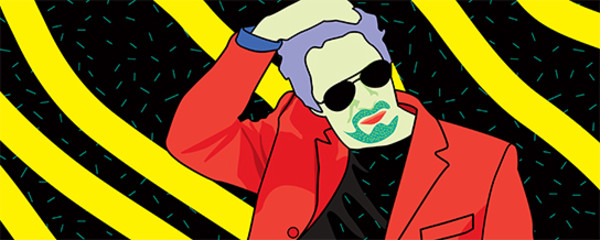DJ C: Original Artcore
DJ C is a man on the move. For the past 10 years, Jake Trussell […]
DJ C: Original Artcore
DJ C is a man on the move. For the past 10 years, Jake Trussell […]

DJ C is a man on the move. For the past 10 years, Jake Trussell has been a pivotal figure in Boston’s electronic music scene, organizing parties, hosting club nights, and spinning a riotous mix of jungle, ragga, hip-hop, dancehall, dubstep, bhangra, and ’80s pop. This June saw the release of DJ C’s long-awaited first full-length, the formidably enjoyable Sonic Weapons. This summer also saw the Boston native move to Chicago on a mission to introduce third-coasters to the hyper-hyphenated style he’s dubbed “Boston bounce.”
“Boston bounce began as an experiment in artificial insemination,” he explains slyly. “I was wondering why Boston didn’t have its own dance music ‘sound’ like many other cities do. My theory was that it had to do with the provincial/puritanical repression that’s left over in the so-called liberal state from back in the olden days. Those parties in the streets of Kingston and the Bronx, and in the abandoned warehouses and fields in the UK weren’t legal, but they were tolerated. Unfortunately, Boston is not so tolerant. We were forced to create our culture in the Beat Research laboratories.”
At their long-running Monday night weekly, also called Beat Research, Trussell and his longtime co-conspirator Anthony Flackett (DJ Flack) have conjured all manner of sonic alchemy. But this is nothing new for Trussell. From his earliest musical experiments as a teenager in the northern suburbs of Boston, Trussell has embraced a dizzying variety of styles, using turntables to sample Ravi Shankar and Frank Zappa records into four-track recordings, and regaling house parties with sets heavy on reggae and techno.
He moved to Boston during the heyday of rave and jungle, and became a founding member of the influential artcore junglist collective Toneburst (the same group that nurtured DJ /rupture). As part of Toneburst, Trussell organized large anti-raves and art happenings around Boston that aimed to explode stagnant musical categories–an approach he describes as “extreme culture-blending.”
Fuelled by recent changes in technology (DJ software like Serato and Final Scratch, MP3 blogs, MySpace), the radical eclecticism that is Trussell’s bread and butter is making a comeback. “It’s changed a huge amount just in the last year,” Trussell says of DJing. “I think there’s a huge amount of potential, because it frees things up, encouraging DJs to mix all different styles together.” These changes, which he describes as a “seismic shift,” have not only spurred his own creativity (there’s a lot of tracks in the DJ C pipeline), but have also led Trussell to make changes to his heretofore ragga jungle-based Mashit imprint. “I’m really excited about the re-launch of Mashit, which will expand across genres (more like my DJ style) and cater to the (more digital) way DJs work today.”

